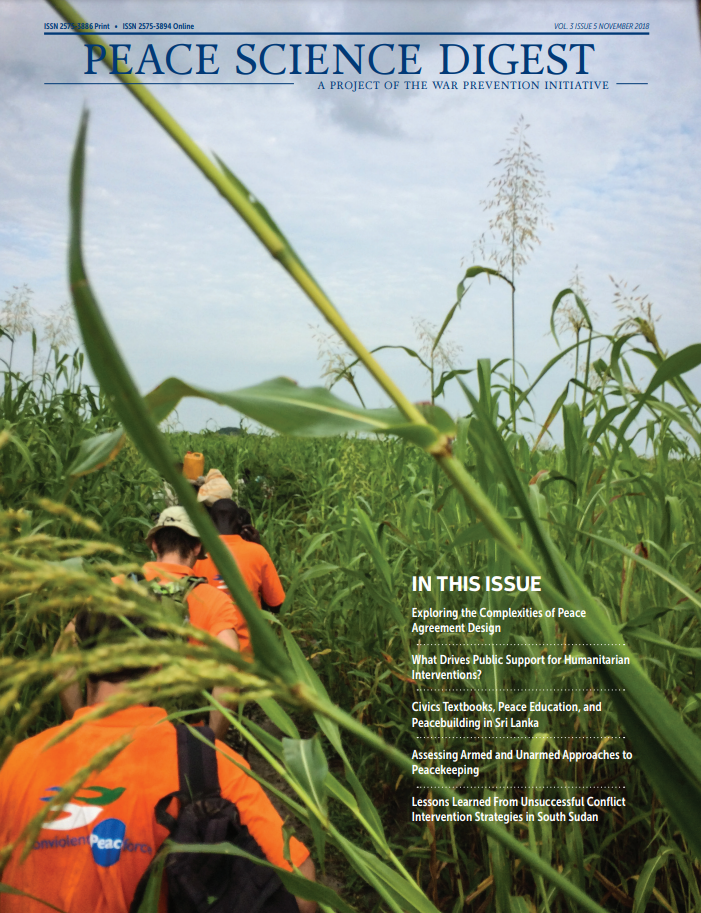We welcome you to Volume 3, Issue 5, of the Peace Science Digest.
Inside this issue, we examine research analyzing hundreds of civil war peace agreements that concludes that “complex” agreements are not necessarily better at keeping the peace than simpler ones. Next, we take a critical look at research on public support for military interventions and the motivations behind support for interventions conducted for “humanitarian” reasons. Third, through examining civics textbooks in Sri Lanka in the context of global peace education efforts, we consider how specific omissions and emphases in these textbooks have served the government’s goals, while failing to address the injustice and inequality still plaguing post-war Sri Lanka. Next, we discuss research finding that the primary peacekeeping tasks associated with preventing violence and protecting civilians can be effectively undertaken by unarmed peacekeepers, who are, furthermore, often able to address some of the shortcomings of their armed counterparts. Finally, the last analysis reflects on possible reasons for why past attempts at peace in South Sudan have failed, calling for more psycho-sociologically informed conflict interventions in the future.
Click on the icon below to download Volume 3, Issue 5
For the text-only format of this issue’s analyses, please click on the titles below or visit our Analysis Catalog.
- Exploring the Complexities of Peace Agreement Design
- What Drives Public Support for Humanitarian Interventions?
- Civics Textbooks, Peace Education, and Peacebuilding in Sri Lanka
- Assessing Armed and Unarmed Approaches to Peacekeeping
- Lessons Learned From Unsuccessful Conflict Intervention Strategies in South Sudan

